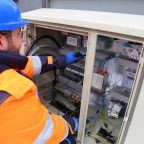
What You Need to Know about the Transformation of Exeter’s Empty Buildings into Modern Work Hubs
Exeter, a city known for its rich heritage and strong academic presence, is embracing a quiet but powerful evolution. As working patterns shift and demand grows for more flexible, localised office spaces, Exeter is seeing a new wave of urban regeneration, one that centres on converting vacant buildings into dynamic work hubs.
This movement not only preserves the city's architectural character but also responds to the practical needs of today’s workforce. The following article shows that, by reimagining empty retail spaces, underused office blocks, and dormant commercial sites, Exeter is creating opportunities for businesses and professionals who want modern infrastructure without leaving the local area.
Why Exeter’s Vacant Buildings Are a Hidden Asset
Like many UK towns and cities, Exeter has experienced a rise in empty properties. Changes in retail habits, a reduced need for traditional office space, and post-pandemic economic shifts have all contributed to increased vacancy rates. However, rather than viewing these buildings as signs of decline, local developers and planners are starting to see them as opportunities.
These properties already have the foundations (literally and figuratively) for new uses. With the right upgrades, layout changes, and connectivity improvements, they can be turned into valuable assets that support local economic growth and modern ways of working.
Meeting the Demand for Flexible, Local Workspaces
The past few years have reshaped expectations about where and how people work. Many professionals no longer want or need to commute into large city centres. At the same time, small businesses, start-ups, and remote teams are looking for affordable, professional environments close to home.
This demand has created the perfect environment for new types of workspace to thrive. Shared offices, hot-desking facilities, and serviced work hubs are becoming increasingly important; and Exeter is in a strong position to meet this need.
Companies like Inver are helping lead this transformation. By converting empty buildings in and around Exeter into high-quality, tech-enabled workspaces, Inver is making it easier for people to work in their own communities without compromising on infrastructure, connectivity, or design.
The Benefits of Local Work Hubs
Creating modern workspaces within Exeter’s existing building stock brings several important benefits:
- Economic revitalisation: Occupied buildings attract foot traffic and support local businesses like cafés, shops, and services.
- Sustainable development: Repurposing existing structures reduces the environmental impact associated with demolition and new construction.
- Community wellbeing: Shorter commutes and improved work-life balance enhance overall quality of life.
- Increased access: These hubs make professional-grade work environments available to freelancers, remote workers, and small enterprises that might not have access to traditional office leases.
By reactivating unused space, Exeter is also making its town centres more vibrant, resilient, and responsive to the needs of a changing population.
Preserving Character While Embracing Change
One of the strengths of Exeter’s transformation is its ability to balance heritage with innovation. Many of the buildings being repurposed have long histories, with unique architectural features and local significance. Rather than replacing them, modern work hub initiatives are preserving their character while updating interiors with the technology and comfort that contemporary work demands.
This approach respects the city’s past while building towards a more adaptive, inclusive future.
What’s Next for Exeter?
As remote and hybrid working continue to influence business strategies, Exeter’s role as a regional innovation hub is only set to grow. The continued transformation of empty properties into thriving workplaces will play a key role in shaping this future, attracting talent, encouraging entrepreneurship, and supporting the city's sustainability goals.
With support from workspace providers, Exeter is demonstrating how cities can respond to economic shifts not by tearing down and starting over, but by working smarter with what already exists.




















